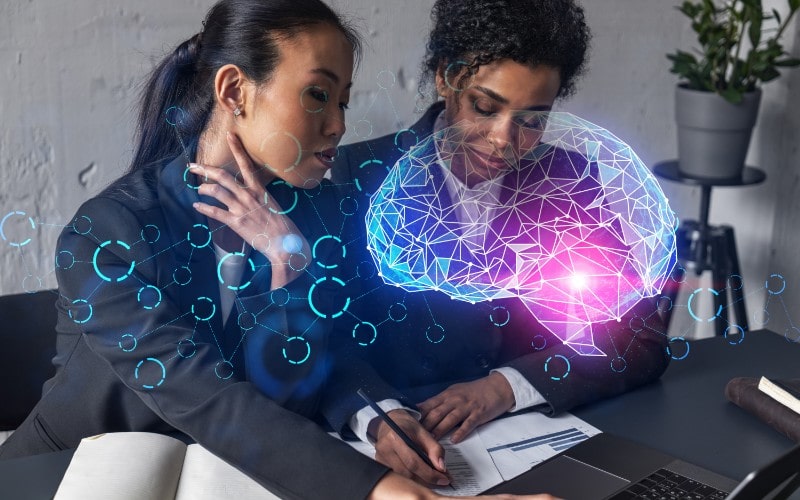World in 2050 focuses on
five key research clusters.
Each of these megatrends represents fields of worldwide pivot points for megachange.
Exponential Technologies Radically Reshaping the World.
Both the promise and the perils of exponential technology have been in focus as generative AI stole the spotlight in 2023. This is only the latest example of innovations bringing disruption that package both powerful force multipliers for the public good as well as great perils.
Sub-trends
- Privacy and data ownership are increasingly at risk.
- Future of blockchain, cryptocurrency in question.
- AI, quantum, and machine learning continue to dazzle, disrupt.
- Governing for equitable access, just usage.
- Innovations bring the future of knowledge economy, art into question.
Disruption from Climate Change, Energy Transition Surging.
There is broad consensus that climate change is real and must be addressed. Yet disagreement over how to address the energy transition, decarbonization, and climate impact mitigation hamper collective action. Meanwhile, the costs of climate change—both human and capital—are surging.
Sub-trends
- Investment and usage questions for legacy vs. green infrastructure at issue.
- World’s cleantech innovation, investment pathways are divergent.
Bridging the accountability, transparency gap with corporate, national goals. - Global North-South divide widening, threatening climate progress.
- Understanding, communicating climate impacts for better adaptation, mitigation.
Education, Work Grapple with Next Great Rebalancing.
Education and work are at an inflection point. A nexus of impacts from the pandemic, technological innovation, and new momentum for rearticulating wellbeing and success in the workplace and classroom mean disruptions that are challenging stakeholders to be more forward thinking and agile—or fail.
Sub-trends
- Rebalancing from pandemic, economic crisis, geopolitical uncertainty disrupting education and work.
- Growing movement to radically transform, not just reform, education systems.
- Relationship between education and work is more about skills and knowledge, less about degrees.
- Power shifting toward workers in employer, employee relationship.
- Global skills and credentialing gap needs addressing.
Individual, Societal Wellbeing at Inflection Point.
There is a growing recognition of the importance of more integrative, holistic approaches to wellbeing. Private and civil society sector work on wellbeing, often empowered by technological innovation, are leading to better diagnostic and treatment options while empowering individuals—yet policy support lags.
Sub-trends
- Widespread rethinking of what is considered health spurs a more holistic, “Whole of Health” approach to Physical, Mental, Spiritual, Social, and Intellectual health.
- The rise of self-care along with personalized and preventative wellbeing.
- Digital innovations, falling trust in science present new opportunities, challenges.
- Failure to take wellbeing and the global rise in unhappiness as serious policy issues, leading to societal upheaval and adverse political events.
Societal, Governance Institutions Under Pressure.
Our trust in one another and our institutions is in crisis, opening the door for misunderstandings or bad actors to cause great harm. At a time when our challenges are increasingly global and require close cooperation, we are increasingly turning away from collective action and focusing on our differences.
Sub-trends
- Disinformation, misinformation, and populism emphasize differences, erode trust.
- Ability of institutions to succeed compromised by rapidly changing world.
- Weakened democracy and rule of law means resurgent autocracies, “strongman” leadership.
- Rising inequality, unresponsive institutions creating regional geopolitical trust gaps.
- Alliances and international rights regimes weakening as governments, global publics look inward.






